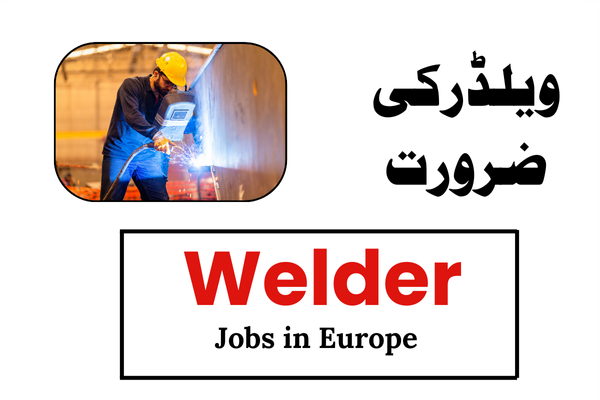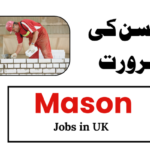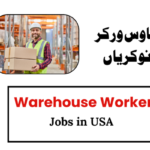Welding Jobs in Europe: Requirements, Salary, and Career Opportunities
Welding jobs in Europe offer skilled workers a chance to build rewarding careers in industries such as construction, manufacturing, shipbuilding, and energy. As European countries continue to expand their infrastructure and industrial capacities, the demand for professional welders has surged. If you’re considering a career in welding or seeking opportunities abroad, this guide will provide insights into the job market, qualifications, benefits, and tips for securing welding jobs in Europe.
Why Pursue Welding Jobs in Europe?
Europe is a hub of industrial activity, and welders are vital to its progress. Here are some reasons why welding jobs in Europe are attractive:
- High Demand: Countries like Germany, the Netherlands, Poland, and Norway actively seek skilled welders for various projects.
- Competitive Salaries: Welding jobs in Europe offer excellent remuneration, often supplemented with benefits such as housing and health insurance.
- Career Growth: Opportunities for advancement in specialized welding techniques, such as TIG, MIG, and underwater welding.
- Diverse Industries: Welders can work in construction, automotive manufacturing, aerospace, oil and gas, and renewable energy sectors.
- Cultural Exposure: Working in Europe provides a chance to experience different cultures and lifestyles.
Key Responsibilities of Welders
Welders are tasked with creating strong and durable joints using various techniques and materials. Typical responsibilities include:
- Reading Blueprints: Understanding technical drawings to execute precise welding tasks.
- Preparing Materials: Cutting, shaping, and assembling metal components.
- Welding Components: Using equipment like arc welders, torches, or lasers to join metals.
- Inspecting Welds: Ensuring the quality and safety of completed welds.
- Adhering to Safety Standards: Following strict protocols to prevent accidents and maintain workplace safety.
Popular Countries for Welding Jobs in Europe
Europe offers numerous opportunities for welders, with specific countries standing out for their demand and benefits:
- Germany: Known for its robust manufacturing sector, Germany offers high salaries and opportunities in automotive and heavy machinery industries.
- Poland: A growing industrial base makes Poland a hotspot for welders, especially in shipbuilding and construction.
- Norway: Welders in Norway are sought after for offshore oil rigs and renewable energy projects, with excellent compensation.
- Netherlands: The country’s maritime and construction sectors provide abundant welding opportunities.
- France: Welders in France find jobs in energy, transportation, and infrastructure development.
Skills and Qualifications Required
To secure a welding job in Europe, specific skills and certifications are essential:
- Technical Skills: Expertise in welding techniques like TIG, MIG, or stick welding.
- Certifications: Recognized qualifications, such as AWS, CSWIP, or European Welding Federation (EWF) certifications.
- Language Proficiency: Basic knowledge of the local language can be advantageous.
- Physical Fitness: Welding often involves working in challenging environments.
- Attention to Detail: Precision and focus are crucial for safety and quality.
Salary and Benefits
Welders in Europe can expect competitive compensation based on their experience and location. Typical packages include:
- Salaries: Average monthly wages range from €2,000 to €5,000, depending on the country and role.
- Housing Allowances: Many employers provide accommodation or housing stipends.
- Health Insurance: Comprehensive medical coverage is often included.
- Pension Contributions: Contributions to retirement funds are common in European countries.
- Paid Leaves: Generous vacation policies enhance work-life balance.
How to Apply for Welding Jobs in Europe
Securing a welding job in Europe requires preparation and persistence. Here’s a step-by-step guide:
- Update Your Resume: Highlight your welding certifications, skills, and experience.
- Search Online Job Portals: Websites like EuroJobs, EURES, and LinkedIn offer listings for welding jobs.
- Contact Recruitment Agencies: Specialized agencies can connect you with employers in Europe.
- Prepare for Interviews: Demonstrate your technical expertise and problem-solving abilities.
- Ensure Required Documents: Have your passport, work visa, and certifications ready.
Challenges of Welding Jobs in Europe
While welding jobs in Europe are rewarding, they come with certain challenges:
- Weather Conditions: Outdoor projects may require working in harsh climates.
- Physical Demands: The job often involves long hours and physically intensive tasks.
- Language Barriers: Communication can be challenging in countries with different languages.
- Certification Requirements: Some employers may require specific European certifications.
Tips for Success in Welding Careers
- Invest in Training: Enroll in advanced courses to master specialized techniques.
- Network: Join welding associations and forums to connect with industry professionals.
- Stay Updated: Keep up with the latest welding technologies and standards.
- Maintain Safety Standards: Always prioritize safety to avoid accidents.
- Build a Portfolio: Document your best work to showcase your skills to potential employers.
Welding jobs in Europe provide a gateway to stable and lucrative careers in various industries. By acquiring the right skills, certifications, and experience, you can tap into the region’s growing demand for welders. Start exploring job opportunities today and take the first step toward a fulfilling career in Europe’s welding sector.




